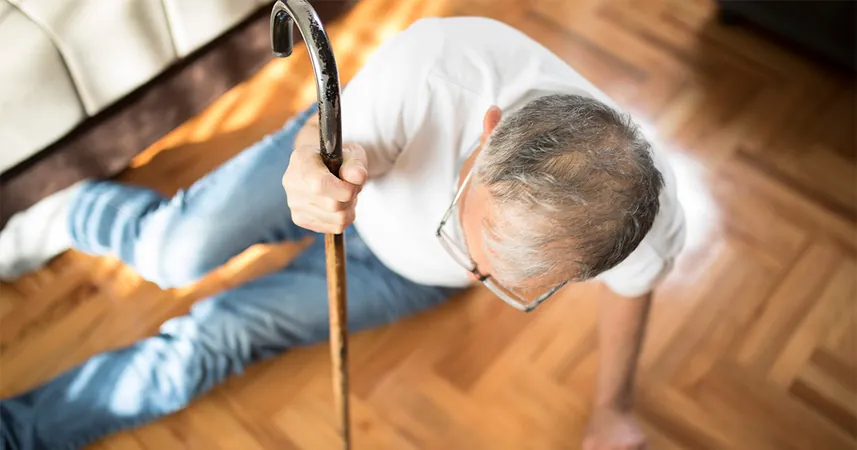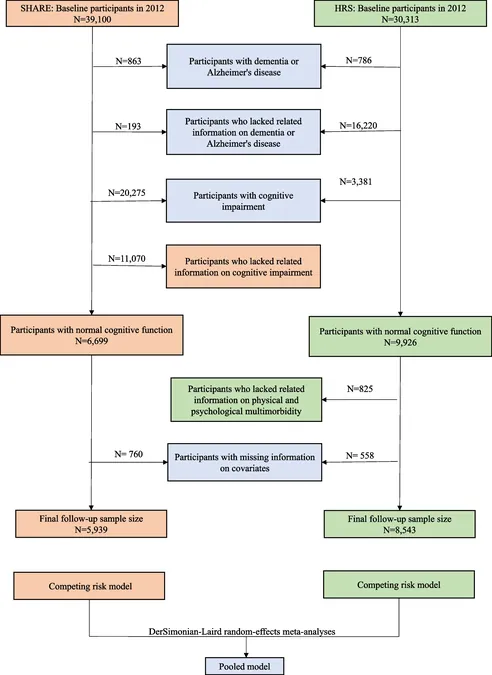
Shocking New Study Reveals Link Between Falls and Alzheimer’s Risk in Seniors!
2024-10-01
A groundbreaking study has unveiled a startling connection between falls in older adults and an increased risk of Alzheimer’s disease and related dementias. According to research conducted by a team at Brigham and Women’s Hospital, 10.6% of older adults who suffered a fall were later diagnosed with dementia. Additionally, the likelihood of receiving a future dementia diagnosis escalates by a staggering 21% following a fall.
The study, published in the esteemed JAMA Network Open, analyzed a comprehensive dataset from Medicare Fee-for-Service, encompassing over 2.4 million seniors who experienced traumatic injuries between 2014 and 2015. Alarmingly, approximately half of those studied incurred their injuries as a result of falls, and these individuals showed a significantly heightened risk of dementia within just one year following the injury.
“The relationship between falls and dementia is not one-sided,” noted Molly Jarman, assistant professor in the Department of Surgery at Brigham. “Cognitive decline can increase the likelihood of experiencing falls, while the trauma from those falls may also hasten the progression of dementia, making a diagnosis more probable. Falls could serve as warning signs, indicating individuals who might benefit from cognitive evaluation.”
The Centers for Disease Control and Prevention (CDC) reports that more than 14 million older adults, or one in four, experience falls annually, making it the primary cause of injury among seniors. The consequences of these injuries can be severe, often leading to long-lasting impairments in functionality, loss of independence, or even death.
To combat this alarming trend, researchers advocate for implementing cognitive screenings for older adults who undergo an injurious fall, especially those requiring emergency department visits or hospital admissions. Early detection of dementia could be crucial, though challenges remain, particularly given the disparities in access to primary care for seniors.
“The significant obstacle we face is the inadequate follow-up for cognitive screening after a fall,” says Alexander J. Ordoobadi, the study's lead author. “Older adults should ideally receive follow-up care from a primary care provider or geriatrician to monitor their cognitive health and recovery post-injury. Unfortunately, many lack regular access to such care.”
The findings emphasize the urgent need for more healthcare professionals specialized in the care of older adults, particularly in conducting cognitive assessments following falls. “Our study underscores the importance of early intervention,” Jarman emphasizes. “If falls are validated as early indicators of dementia, we could identify additional precursors for early intervention, which would significantly enhance our approach to managing cognitive health in older populations.”
With the aging population growing rapidly, understanding the ramifications of falls and their potential links to cognitive decline presents an urgent call to action for healthcare providers and policymakers alike. As researchers continue to unravel the complexities of this relationship, timely interventions could change the landscape of dementia care for older adults.
Stay informed and protect your elderly loved ones!


 Brasil (PT)
Brasil (PT)
 Canada (EN)
Canada (EN)
 Chile (ES)
Chile (ES)
 España (ES)
España (ES)
 France (FR)
France (FR)
 Hong Kong (EN)
Hong Kong (EN)
 Italia (IT)
Italia (IT)
 日本 (JA)
日本 (JA)
 Magyarország (HU)
Magyarország (HU)
 Norge (NO)
Norge (NO)
 Polska (PL)
Polska (PL)
 Schweiz (DE)
Schweiz (DE)
 Singapore (EN)
Singapore (EN)
 Sverige (SV)
Sverige (SV)
 Suomi (FI)
Suomi (FI)
 Türkiye (TR)
Türkiye (TR)